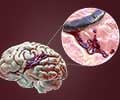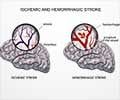Frequently Asked Questions
1. Which Doctor to visit if I have a brain hemorrhage?If you suspect you have a brain hemorrhage or experience symptoms such as severe headache, confusion, weakness, or difficulty speaking, seek immediate medical attention. A neurologist or neurosurgeon specializes in diagnosing and treating brain hemorrhages and related conditions.
2. What is Intracerebral Hemorrhage (ICH), and What Causes It?
Intracerebral hemorrhage (ICH) is bleeding within the brain tissue itself. It is often caused by conditions such as hypertension, cerebral amyloid angiopathy, or trauma.
3. How Does Subarachnoid Hemorrhage (SAH) Differ from Other Types of Brain Hemorrhage?
Subarachnoid hemorrhage (SAH) involves bleeding into the space between the arachnoid membrane and the pia mater, usually due to a ruptured aneurysm. SAH presents with a sudden, severe headache and requires urgent medical attention.
4. What Are the Symptoms and Treatment Options for Subdural Hematoma (SDH)?
Subdural hematoma (SDH) symptoms range from acute headache and confusion to chronic memory problems. Treatment may involve surgical evacuation for acute cases and monitoring for chronic cases.
5. What Emergency Measures Are Necessary for Epidural Hematoma (EDH)?
Emergency measures for epidural hematoma (EDH) include prompt recognition and surgical intervention. EDH often presents with a lucid interval followed by rapid neurological deterioration.
6. Can Intraventricular Hemorrhage (IVH) Occur Independently, and How Is It Managed?
Intraventricular hemorrhage (IVH) can occur independently or as a complication of other types of brain hemorrhage. Management focuses on controlling bleeding and preventing complications like hydrocephalus.










